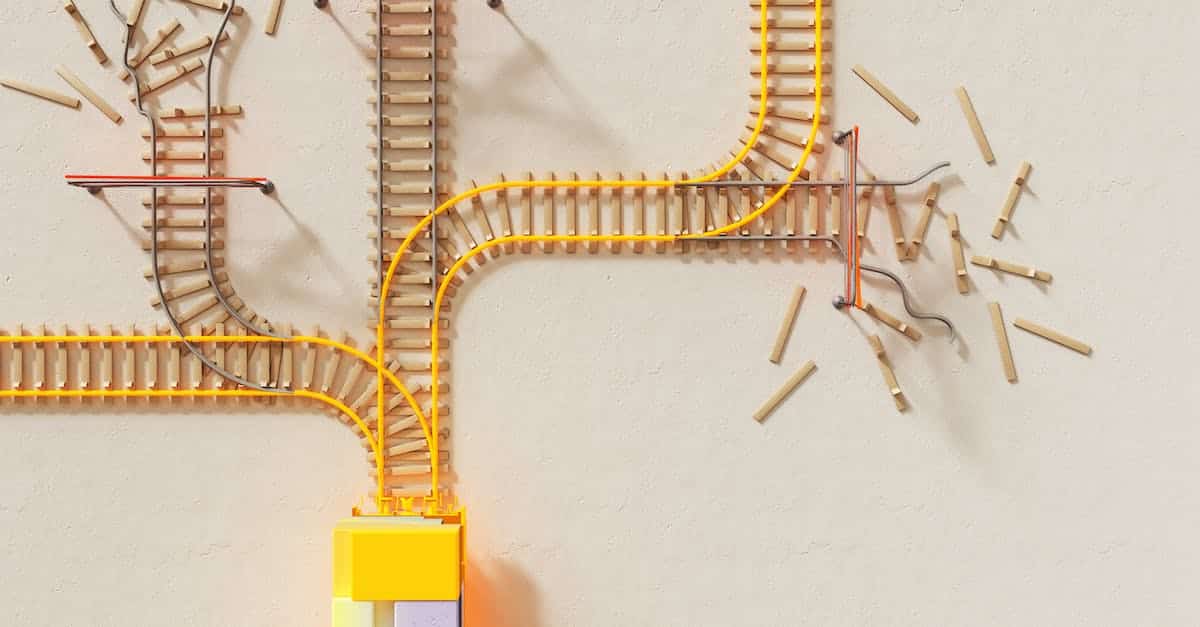Imagine hitting the jackpot on your favorite casino game, only to be clouded by doubt about the game’s fairness. Trust is a high-stakes game in the gambling industry, and blockchain technology could be the ace up the sleeve. This revolutionary tech is reshaping how you play and trust casino games.
In this article, you’ll discover how blockchain isn’t just for cryptocurrency enthusiasts anymore. It’s infiltrating the casino world, promising transparency like never before. We’ll dive into the mechanics of blockchain-powered fairness and explore real-world applications that are changing the game.
Prepare to be dealt a hand in understanding how blockchain technology is setting new standards for fairness in casino gaming. You’re about to find out why it’s a game-changer for players and operators alike. Keep reading to see how this tech can assure you that the odds haven’t been tampered with – it’s a bet worth taking.
Table of Contents
ToggleThe Importance of Trust in the Gambling Industry
Trust is the cornerstone of any gambling operation. As a player, you’re placing your money on the line, often without any tangible guarantee of the game’s fairness. In an industry where the stakes are high and the potential for fraud is ever-present, the importance of trust cannot be overstated. Casinos and gaming platforms that earn the trust of their patrons are more likely to retain a loyal customer base and maintain a positive reputation in a competitive market.
Typically, trust in the gambling industry has been established through licensing and regulations. These measures are put in place to ensure that games are fair, odds are transparent, and players are protected from unlawful practices. However, with the emergence of online gambling, it’s become increasingly difficult for players to verify these protocols independently.
Blockchain technology offers a solution to this challenge. By leveraging decentralized ledgers, each transaction and game outcome can be recorded in a manner that is immutable and transparent. This means that as a player, you can personally check the fairness of a given game in real-time, something unprecedented in traditional gambling settings.
Here’s how blockchain enhances trust:
- Transparency: All transactions and game outcomes are accessible for review.
- Immutability: Once recorded, data cannot be altered, eliminating the risk of tampering.
- Provable Fairness: Casinos can now provide cryptographic evidence of randomness in game outcomes.
Such unparalleled levels of trust have profound implications for the industry, potentially ushering in a new era where skepticism gives way to assurance. It’s not only about creating a secure environment but also demonstrating to you, the player, that your chances are as good as they are proclaimed to be. This transparency not only satisfies ethical standards but also serves as a powerful marketing tool for casinos aiming to differentiate themselves in a crowded market.
What is Blockchain Technology?
Before delving deeper into its implications for casino game fairness, it’s crucial to understand what blockchain technology entails. Blockchain is a distributed ledger system where transactions are recorded with an immutable cryptographic signature called a hash. In simple terms, it’s like a digital ledger that is accessible to everyone but secure and unchangeable.
This technology operates on a peer-to-peer network where every participant has a copy of the ledger. When a new transaction or block is added, it must be verified by multiple participants, known as nodes, through a consensus process. This consensus ensures that each copy of the ledger is identical and accurate.
One of the key features of blockchain technology is its transparency. Transactions on the blockchain are visible to anyone within the network, meaning that all participants can view the transaction history. This level of transparency is unparalleled in traditional electronic transaction methods, where details can be obscured and manipulation is possible.
Another crucial aspect is its immutability. Once information is entered into the blockchain, it cannot be altered or deleted. This makes the technology inherently resistant to fraud and tampering, as any changes to the ledger would require overwhelming consensus from the network, which is nearly impossible to achieve.
Lastly, blockchain’s provable fairness comes from the use of cryptographic algorithms that ensure the outcomes of games or transactions are fair and random. It allows for the creation of smart contracts, self-executing contracts with the terms of the agreement directly written into lines of code, which can govern transactions and games without human intervention, reducing the risk of manipulation.
Understanding these features of blockchain technology is the foundation for recognizing its potential in ensuring fairness in casino games. With its application, every wager and outcome can be transparently verified by users, cultivating an environment of trust and integrity crucial for the gambling industry.
Blockchain Technology in Casino Gaming
When you venture into the online gambling world, you’ll find that blockchain technology is rapidly transforming the industry’s landscape. Online casinos are beginning to adopt blockchain to leverage its potential in providing transparent and fair gaming experiences. Integrating this technology into online casino operations means that every transaction, bet, or spin is recorded on a decentralized ledger. This irreversible ledger offers transparency at levels previously unthinkable in online gambling.
One of the stand-out features you’ll notice is provable fairness. In blockchain-based casino games, algorithms generate random numbers that can be independently verified by users. This means you can check the fairness of each game outcome, ensuring that the odds are as advertised, without hidden manipulations.
The adoption of blockchain isn’t just for the player’s peace of mind. For casino operators, it streamlines operations by making transactions quick, cheaper, and secure. Blockchain also reduces fraudulent activities, as each transaction is traceable and permanently recorded.
Here are the benefits of blockchain in casino gaming:
- Transparency: Every action is recorded publicly, dissolving doubts about game fairness.
- Security: Encrypted transactions protect your data and funds, deterring hackers.
- Cost-efficiency: Transaction fees are reduced, benefiting both players and casinos.
- Speed: Deposits and withdrawals are completed at a much faster pace.
- Regulations Compliance: Blockchain’s immutable records can assist in meeting regulatory requirements.
As you delve deeper, you’ll come across various blockchain casino platforms, each offering diverse advantages. Some focus on exclusively cryptocurrency-based transactions, while others provide a hybrid model, accepting both digital and fiat currencies. The consensus is clear: blockchain technology is carving a new paradigm in how casino games operate and how trust is built between players and operators. It’s a revolutionary shift that’s redefining what it means to play online confidently.
How Blockchain Ensures Fairness in Casino Games
When diving into the mechanisms behind blockchain-provided fairness, it’s essential to understand the concept of provably fair gaming. This system allows you to verify each game’s result with an algorithm that’s both transparent and tamper-proof. Blockchain technology uses cryptographic hashes—unique codes that represent game data. Before each game round, you’re given the corresponding hash. Once the round is over, you can compare the outcomes with the hash. If they match, the game was fair.
Smart contracts, self-executing contracts with the terms of the agreement directly written into lines of code, are a pivotal aspect of this fairness mechanism. They automatically execute transactions when preset conditions are met, which means every bet or game outcome happens according to the predetermined rules that are visible on the blockchain. There’s no room for human intervention or manipulation, providing an additional layer of trust.
Let’s break down the core advantages of blockchain for ensuring game fairness:
- Transparency: Every transaction is recorded and openly verifiable.
- Immutability: Once data has been entered into the blockchain, it cannot be altered.
- Decentralization: No single entity controls the game outcomes, preventing potential biases or fraud.
Consider the impact of blockchain’s immutability on fairness. Any attempt at changing game outcomes would require altering all subsequent blocks on the ledger—an impractical endeavor for even the most advanced hackers.
The practical side for you as a player could look like this:
- Check the game’s fairness algorithm provided by the casino.
- Place your bet and receive the cryptographic hash.
- After the game, use a hash calculator available online to verify the outcome.
- Ensure the result matches the predetermined outcome, confirming fairness.
Blockchain’s role in ensuring fairness is not just theoretical. Several online casinos already operate on blockchain platforms, offering transparent gaming experiences. Game developers are integrating this technology to not only appeal to players seeking fair play but to set a new standard in online gambling integrity.
Real-World Applications of Blockchain in the Casino Industry
Blockchain technology has already begun revolutionizing how casino games operate, with several real-world applications proving its impact. Decentralized casinos have emerged, operating entirely on blockchain networks. These platforms offer a wide range of games, from slots to blackjack, all powered by blockchain to ensure fair play.
Smart contracts are at the heart of these decentralized casinos. They’re used to create transparent, immutable gaming outcomes that players can verify. These contracts transparently handle bets and payouts, taking human error or manipulation out of the equation.
Here are some notable applications:
- Transparency in Lottery Games: Blockchain-based lotteries publish all transactions and results on the public ledger, ensuring that participants can verify the randomness and fairness of the draw.
- Slot Machines with Verifiable Fairness: Blockchain slots use random number generators (RNG) that are both transparent and provable, ensuring that the outcomes haven’t been tampered with.
- Poker Rooms Ensuring Player Trust: By recording hand histories and player statistics on the blockchain, poker rooms have enhanced player trust. Gamers can analyze data to confirm that the games are running as advertised.
Below is a breakdown of blockchain’s impact on casino games:
| Aspect | Impact |
|---|---|
| Transparency | Players can verify each bet’s fairness |
| Immutability | Game outcomes can’t be altered retrospectively |
| Decentralization | Reduced risk of systemic manipulation |
Despite its significant advantages, adoption has just begun. Many established online casinos have taken a cautious approach, incrementally integrating blockchain to curate a hybrid experience. Payment systems have been an early focus, with cryptocurrencies offering a secure, anonymous method for depositing and withdrawing funds. The next phase involves full integration of blockchain within the game architecture, making fairness and transparency the norm rather than the exception.
Blockchain’s potential in casinos extends beyond game fairness. It’s poised to tackle issues like money laundering and problem gambling, providing automated ways to recognize and address these challenges. This demonstrates that blockchain’s role in the casino industry may be just at its genesis, creating a landscape ripe for innovation and growth.
Conclusion
Embracing blockchain technology has revolutionized the casino industry by enhancing game fairness and transparency. You’ve seen how decentralized casinos and smart contracts contribute to a trustable gaming environment where outcomes are verifiable. With blockchain’s growth in this sector, you’re witnessing a significant shift towards a more secure and equitable gaming experience. The potential to mitigate issues like money laundering and problem gambling is just the beginning. As the technology matures, expect to see even more innovative applications that will further shape the future of casino gaming.
Frequently Asked Questions
What are decentralized casinos?
Decentralized casinos are online gaming platforms that operate on blockchain networks, allowing for transparent, immutable, and verifiable transactions without the need for a central authority.
How does blockchain technology ensure fair play in casinos?
Blockchain technology ensures fair play by leveraging smart contracts to create transparent and immutable gaming outcomes, which can be independently verified by players.
Can blockchain technology prevent money laundering in casinos?
Blockchain’s transparency and traceability can significantly reduce the risk of money laundering by providing an immutable record of all transactions.
What role do smart contracts play in blockchain casinos?
Smart contracts automate and enforce the execution of casino game outcomes, which ensures that the rules are followed indisputably and payouts are distributed fairly.
How might blockchain impact problem gambling?
Blockchain technology has the potential to offer more responsible gambling solutions by enabling self-exclusion schemes across all blockchain-based casinos and providing transparent tracking of player behaviors.
Are blockchain-based slot machines and poker rooms available?
Yes, blockchain technology has been applied to a range of casino games including slot machines and poker rooms to ensure fairness and transparency in game outcomes.
Is the adoption of blockchain technology in the casino industry widespread?
While the adoption has begun, it’s still in its early stages. However, blockchain has the potential to revolutionize the industry by addressing key issues and fostering innovation and growth.






















